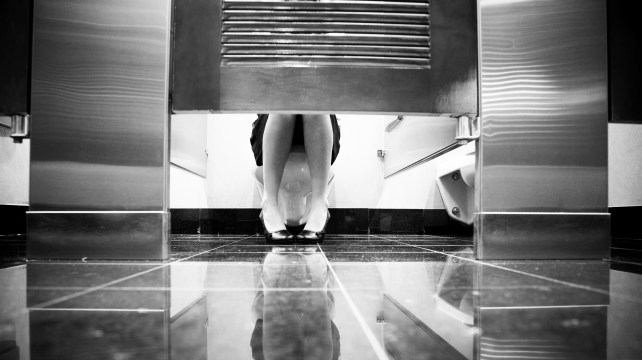
The person in this story, who asked to remain anonymous, studied opera at Indiana University’s Jacobs School of Music. Several years after graduating, she wasn’t making enough money singing to support her family. So she took a part-time job at a boutique tax firm outside New York City.
In 1994, when I was about 34, I was doing an administrative assistant job three days a week outside New York. My boss was a tax attorney and CPA. He was very wealthy, just judging from his house. To own a house in that area, you have to have some money, but he had a very big house. He drove sports cars. The whole bit.
The clients were all extraordinarily wealthy people. He had a kind of specialty of dealing with people who had equine ranches. He specialized in getting wealthy people who intentionally went into the business of raising horses to lose a bunch of money so they could get all the farm write-offs. It was a tax shelter for them. I think almost all his clients had either foundations of some kind or horse ranching.
He seemed cordial and gregarious at first. It took two to three weeks to realize I was going to have problems with him. The first clue was that he’d stand over me when I worked. He would ask me irrelevant questions like, “Why is your Num Lock key on?” He would stay for quite a while.
Because this was 1994, we were trying to transition to Windows. He was frustrated with Windows and he would stand over my desk and watch me try to figure it out. He would stay for 10 to 15 minutes, but that’s an eternity when you’re trying to figure something out. He would come by three or four times a day at least.
He had a shelf specifically for packages that were coming in and out. I would place the packages on it, but he kept moving them to the floor. I actually saw him do it once. I was like, “Oh, you don’t want those on the shelf?” He said, it’s not convenient, or something along those lines.
One day, I was in his office, and he asked me to come around to his side of the desk to see something he was looking at. I looked up and I could clearly see my desk in the reflection of the print above where the shelf packages were supposed to be. His desk was in the exact same position as mine but in a separate office. When he would leave the French doors open, he could see into that print and it would reflect to me. I got a cold chill. I didn’t perceive this as a sexual thing. It was more of a control issue, that he wanted to know what I was doing every second of every day by watching me.
I kept thinking, wait, don’t you have something better to do? But he was afraid that someone in his employ was going to waste a microsecond of his paid time. I was the only one he could see all the time because of the way the office was set up.
The way he handled his displeasure was more disturbing than just asking me not to do something. My husband and I needed to communicate during the day. We had a 2-year-old in day care. If I was talking to my husband, he would come into the secretary’s area, which is where I sat, and he’d just stand right by the door. He wanted you to know he was eavesdropping.
I knew after a few weeks that I needed to leave. But my son was 2 and I was trapped financially. My husband and I had just bought a house in Putnam County and we couldn’t afford for me not to have an office job, even though I was also performing operas.
So I’d use the restroom to get away because that was the only place I could go where he couldn’t see me and where I felt like I had just a minute to breathe. One day, when things were really coming to a head, he asked me point-blank what took me so long in the bathroom. He actually was timing me in the restroom.
I just looked right dead into his eyes, and I actually used these words: “Would you like me to type up an agenda of what I did in there?” He had no answer. There’s no taking that back. Our relationship at work was not working. So I moved on.
I already had a position lined up. I told him I would not be back. I didn’t give him notice because I knew he would make my life a living hell, and he probably wouldn’t have let me stay. I just told him, “I’m not going to be back on Monday. Here’s the key.” I smiled at him and said, “I don’t think either one of us is happy with this arrangement.”
He seemed stunned by that. He said, “Happy?”
I said, “Yes. You remember happy?”
This story is part of our Bad Bosses project, a reported collection of accounts from workers about their terrible bosses and the system that creates them. You can read more about the entire project and find every story here. Annotations—highlighted throughout—can be clicked for further context and comment from other parties. Got your own bad boss story? Send us an email.
















